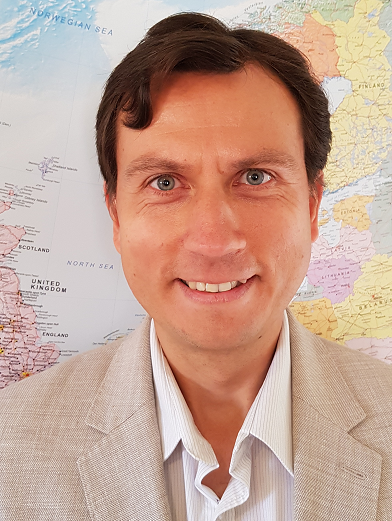Brief profile: a universal scientist, a mathematician by training, professor in computer science, and the lead of the group developing a new area of Geometric Data Science for crystallography, materials chemistry, and structural biology.
Contents: research, group, and experience
- Geometric Data Science: theory and applications
- Affiliations: current positions and connections
- News: success stories in the research group
- Career highlights: achievements since 2005
- Grants: fellowships and research projects
- Research group in Data Science: join us
- All meetings in Geometric Data Science:
- MACSMIN, MIF++, and PhD training
- Experience: CV and job history since 2000
- Education: PhD (2003), 2×MSc and PGCert
Geometric Data Science: from theory to applications and back

Geometric Data Science develops continuous parametrisations for moduli spaces of real data objects under important relations. The key example is a cloud of unordered points under rigid motion. Until CVPR 2023, point clouds did not have complete invariants with Lipschitz continuous metrics and polynomial-time algorithms even for four points in the plane.
Book Geometric Data Science: moduli spaces of real data (Feb 2026 latest pdf), an early version in arxiv:2512.05040.
The major breakthroughs are the Crystal Isometry Principle and a polynomial-time extension of the SSS theorem to unordered points in any dimension, underpinned by the articles in NeurIPS, JACS, CVPR, ICML, SR from the top 35 list.
Videos of talks explaining the latest results in Geometric Data Science, see the earlier videos
- Geometric Data Science established three principles of Atomic Geometry (52 min) at the 6th MACSMIN, September 2025.
- The Crystal Isometry Principle infers chemistry from geometry (55 min, slides), Geometry of Materials, April 2025.
- Complete, bi-continuous, and realisable invariants of atomic clouds (48 min) at the 5th MACSMIN, September 2024.
- Continuous crystallography and geometry of proteins (51 min) at the 4th MACSMIN conference, Liverpool, May 2023.
- Recognizing rigid patterns of unlabeled point clouds by complete isometry invariants, 8-min talk on the CVPR 2023 paper.
- Geometric Data Science for continuous crystallography (53 min) at the 3rd MACSMIN conference, September 2022.
- Geometric Data Science: old challenges and new solutions (50 min) at Applied Topology, Bedlewo (Poland), July 2022.
- The Crystal Isometry Principle (44 min) at the LIV.DAT seminar in the Physics department at Liverpool, April 2022.
Back to Top of this page
Affiliations: current positions and connections
- Data Scientist at the Materials Innovation Factory (University of Liverpool) funded by Unilever, HEFCE, Leverhulme, ERC. MIF is a £112M institute spun out from the top 3 Chemistry department for outstanding (4*) research impact in the UK.
- Full professor in the top 5 School of Computer Science and Informatics for outstanding (4*) research outputs in the UK.
- 2026: visiting professor at the Université de Lorraine (Metz, France) collaborating with the group of Thérèse Malliavin.
- Since 2025: affiliated member of the NITMB (National Institute for Theory and Mathematics in Biology), Chicago (US).
- Since 2024: management team member in the CDT Digital and Automated Materials Chemistry, Liverpool (UK).
- Since 2023: member (consultant in 2021-2023) of the International Union of Crystallography commission MaThCryst.
- Since 2022: management team member in the CDT LIV.INNO on Data Intensive Science in Physics, Liverpool (UK).
- Since 2020: founder and organiser of the conference MACSMIN (Mathematics and Computer Science for Materials Innovation) whose post-proceedings in 2022 were published by Acta Crystallographica A, where I was a guest editor.
- See other past and current admin posts.
Many thanks to the following research sponsors and collaborators:
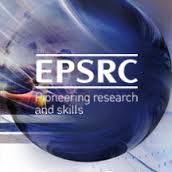
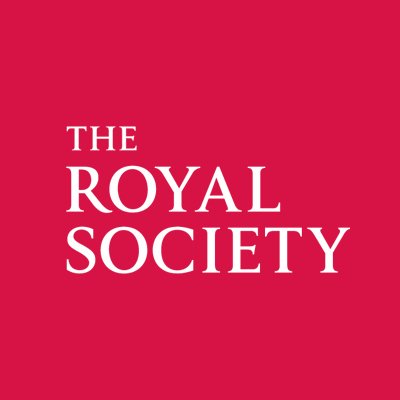
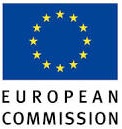
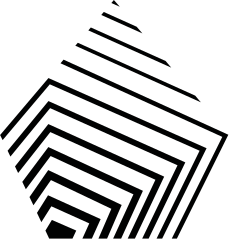
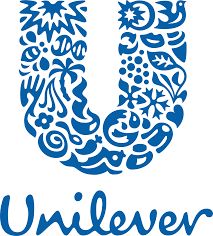


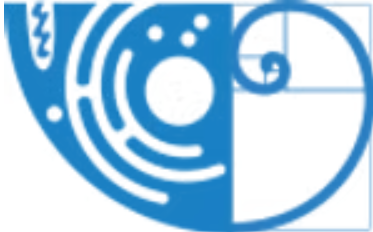
Back to Top of this page
News: success stories of the group in Data Science Theory and Applications
- March 2026: congratulations to Surya Majumder, the first author of the CIA paper, who was awarded the PhD studentship "A fast validation of the symmetry principle for molecular synthesisability", co-supervised by Vitaliy and Andy Cooper FRS.
- February 2026: congratulations to Tatiana Kurlina (1st year undergraduate at UCL), who presented at Oxford her poster AI in Crystallography: Mathematics exposes Artificial Illusions in material design based on her software school project.
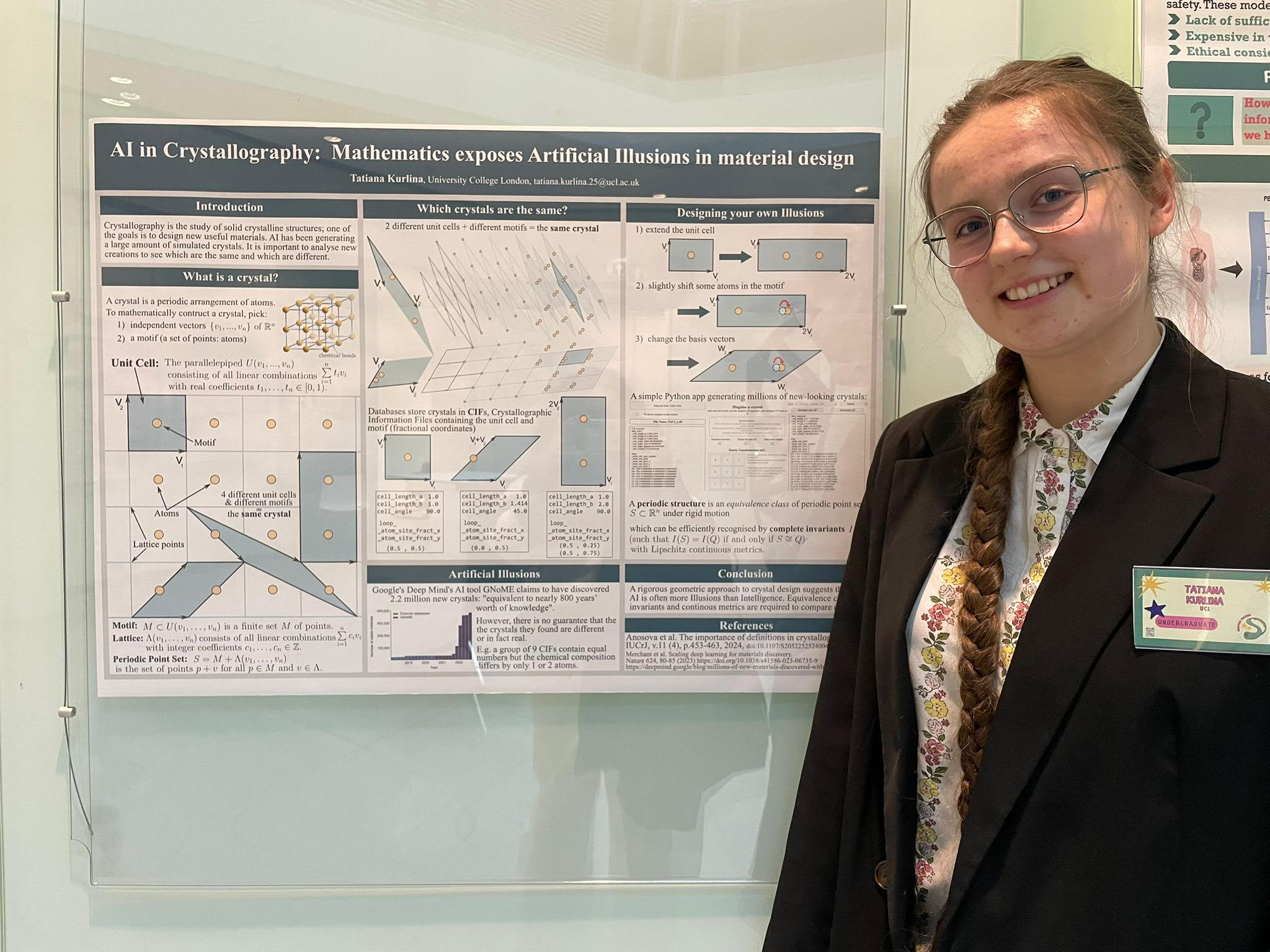
Abstract: Crystallography is the study of solid crystalline materials. AI tried to predict new materials by generating millions of simulated crystals, but failed to recognise thousands of exact & near-duplicates. Comparing crystals reliably requires a geometric approach using equivalence classes, invariants and continuous metrics. Since symmetries break under almost any noise, anyone can generate millions of new-looking crystals through maths rather than AI. Using geometry to rigorously study real objects is growing past mathematical crystallography into a new field, Geometric Data Science. - February 2026: the National Insitute for Theory and Mathematics in Biology (NITMB, Chicago, US) awarded funding for a research group of Olga Anosova, Erica Flapan, Vitaliy Kurlin, Danielle O'Donnol, Pawel Rubach, and Joanna Sulkowska.
- February 2026: the executive committee of the European Crystallographic Association (ECA) recommended a formal presentation of a new SIG (Special Interest Group) in mathematical crystallography for the ECA Council in September 2026. Many thanks to other founding members: Wolfgang Hornfeck, Gemma de la Flor, Philipp Hans, Berthold Stoeger.
- February 2026: the story of previously unknown duplicate structures in materials databases led to the
duplicate dilemma.
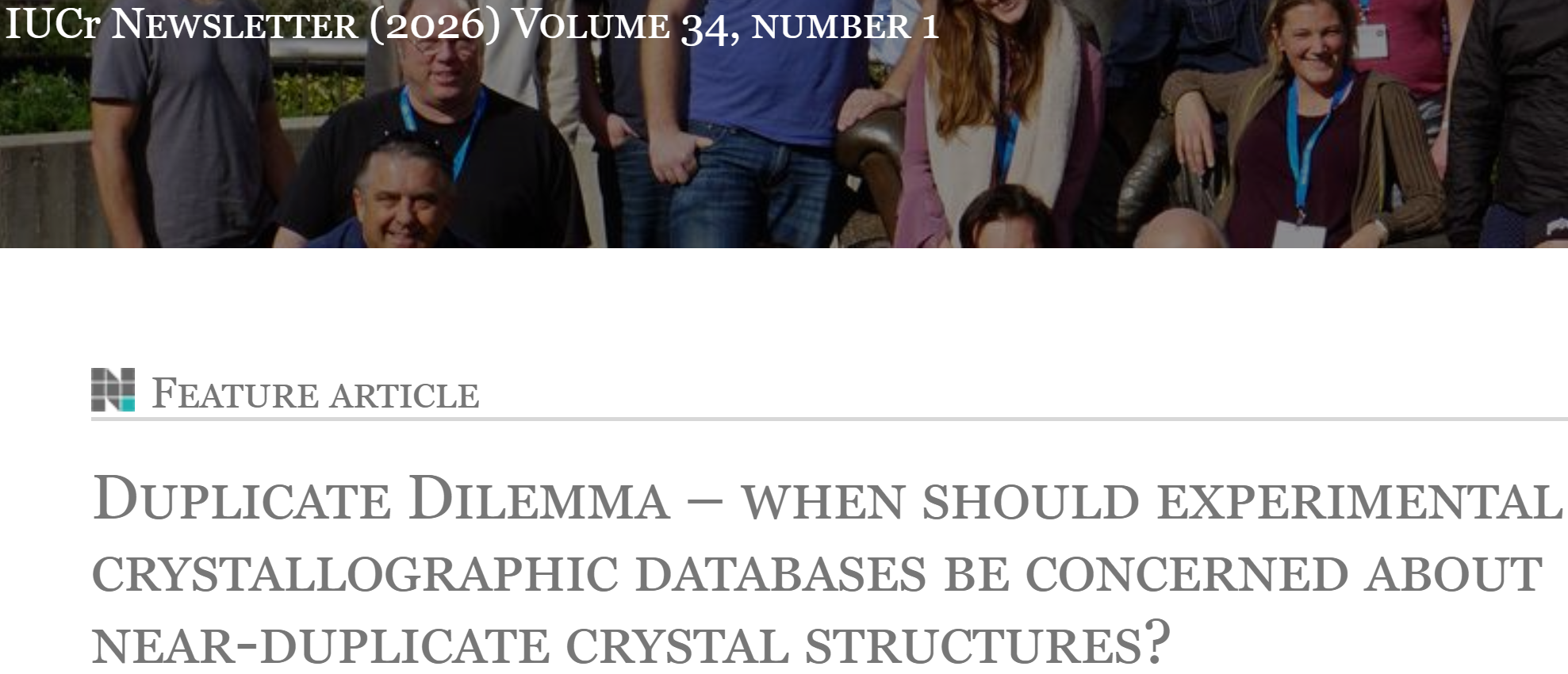
- February 2026: serving as an area chair at the International Conference on Machine Learning 2026, Seoul (South Korea).
- January 2026: following our research in
SIAP 2026,
PR 2026,
SR 2025,
IUCrJ 2024,
CGD 2024,
the C&EN news story on duplicate structures in materials databases
led to the correction of a Nature paper, which initially over-claimed its results but later crossed out almost all words "novel" and "discovery". Here are the title, abstract, and the full correction in pdf.
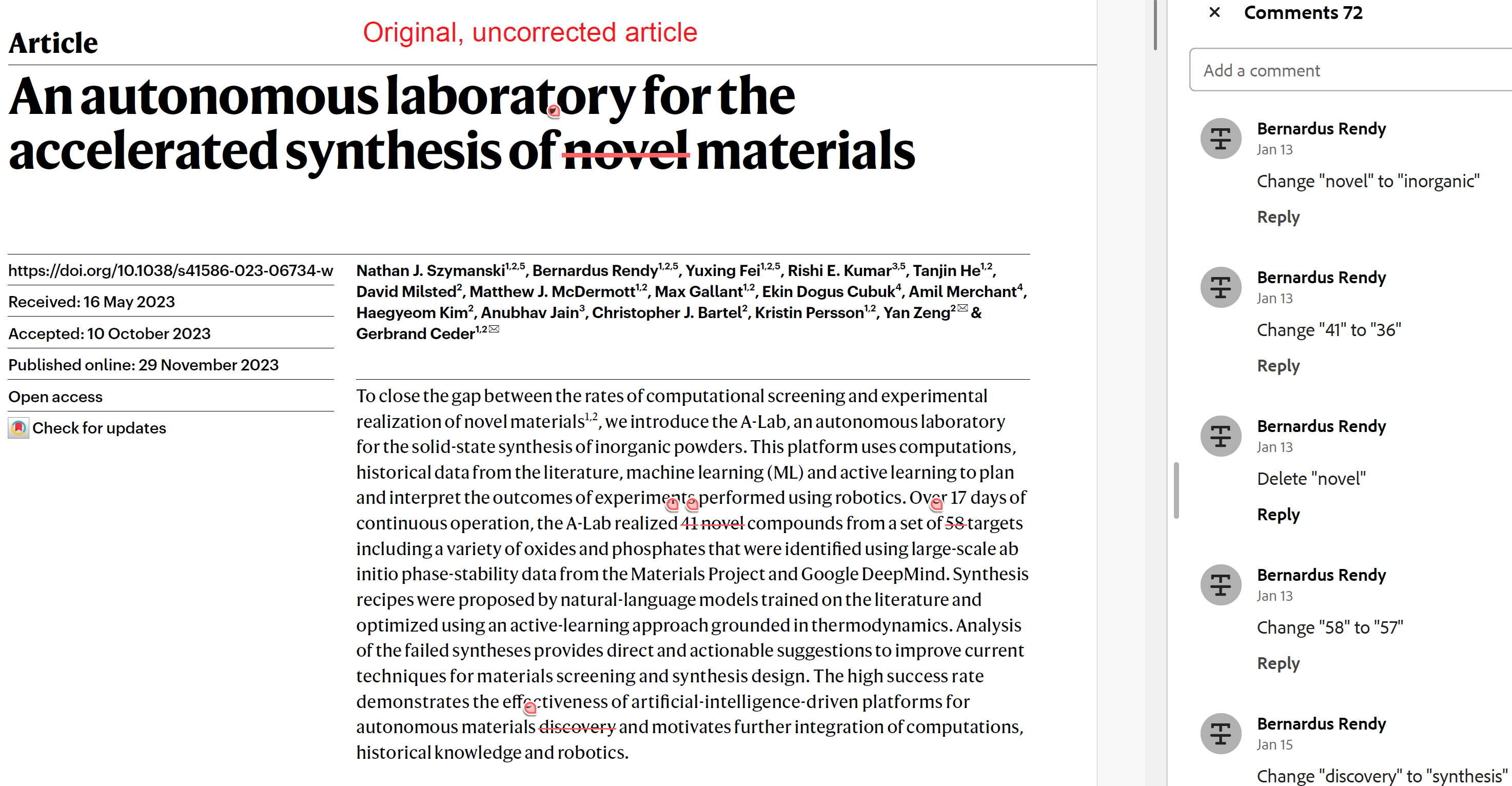 Update: ‘Nature’ robot chemist paper corrected, but some questions remain unanswered. This story will certainly continue
Update: ‘Nature’ robot chemist paper corrected, but some questions remain unanswered. This story will certainly continue
- Since March 2013: previous news stories are in the news archive.
Back to Top of this page
Highlights: research, leadership, awards, papers, keynotes, collaborations, mentoring
Research: major results in the new area of Geometric Data Science
- The Crystal Isometry Principle says that any real periodic material is determined by a precise enough geometry of only atomic centers without chemical elements, under the same ambient conditions such as temperature and pressure. Hence all periodic crystals live in a common space continuously parametrised by complete invariants of periodic sets under rigid motion, similar to Mendeleev's table of chemical elements parametrised by the period and group number. Summary and details in SIAP 2026, PR 2026, SR 2025, IUCrJ 2024, CGD 2024, FoCM 2024, NeurIPS 2022, MATCH 2022.
- The Principle of Molecular Rigidity says that any real molecule (under the standard ambient conditions) is uniquely determined by a class of its atomic centers under rigid motion and hence is efficiently recognizable due to the polynomial-time extension of the SSS theorem, which classifies all finite clouds of unordered points under rigid motion by complete invariants with Lipschitz continuous metrics, all computable in polynomial time of the cloud size for a fixed Euclidean dimension. Even the case of 4 unordered points in the plane had only a brute-force solution for 2000+ years, e.g. 4!=24 distance matrices on 4 unordered points, until the problem was solved in CVPR 2023, MATCH 2024-2025, and SIAP 2026.
Key leadership roles (all administrative duties)
- Since 2020: founder of the annual conference MACSMIN = Mathematics and Computer Science for Materials Innovation.
- Since 2019: organiser of the PhD training in Data Science and the MIF++ seminar, now running online across the world.
- Since 2017: lead of the group in Data Science Theory and Applications, including several postdocs and PhD students.
Back to Highlights | Back to Top of this page
Personal awards (all research grants)
- 2023 - 2025 Royal Society APEX fellowship replacing the teaching for two years (£100K, ref APX\R1\231152).
Title: New geometric methods for mapping the space of periodic crystals. - 2022 - 2025 PI of the EPSRC New Horizons grant Inverse design of periodic crystals (£250K, ref EP/X018474/1).
- 2021 - 2023 Royal Academy of Engineering Industry Fellowship at the Cambridge Crystallographic Data Centre, UK.
Title: Data Science for Next Generation Engineering of Solid Crystalline Materials (£220K, ref IF2122\186). - 2014 - 2016 EPSRC-funded Knowledge Transfer Secondment in Computer Vision at Microsoft Research Cambridge.
- 2013 Teaching award Lecturer of the Year, voted by Durham Student's Union in the Science Faculty (9 departments).
- 2011 - 2013 PI of the EPSRC grant (£100K, ref EP/I030328/1), the first UK grant on Topological Data Analysis.
- 2005 - 2007 Marie Curie International Incoming Postdoctoral Fellowship (142K euros), University of Liverpool, UK.
Back to Highlights | Back to Top of this page
10 main research papers where I was a single author or a lead author (all publications)
- 2026: Pointwise Distance Distributions for detecting near-duplicates in large materials databases in SIAP (to appear).
- 2026: Recognition of near-duplicate periodic patterns by continuous metrics with guarantees in Pattern Recognition.
- 2025: Geographic-style maps with a local novelty distance help navigate in the materials space in Scientific Reports.
- 2025: A complete and bi-continuous invariant of protein backbones in MATCH Communications Math. Comp. Chemistry.
- 2024: The importance of definitions in crystallography defined a crystal structure as a rigid class of its atomic centres.
- 2024: single-authored Mathematics of 2-dimensional lattices (59 pages) in Foundations of Computational Mathematics.
- 2023: Recognizing rigid patterns of unlabeled point clouds by complete and continuous isometry invariants in CVPR.
- 2022: Resolving the data ambiguity for periodic crystals in NeurIPS 2022, a top 10 publication venue across all subjects.
- 2015: single-authored Homologically Persistent Skeleton in Computer Graphics Forum, extended in AAM 2019, PR 2021.
- 2014: single-authored paper in the peer-reviewed proceedings of Computer Vision and Pattern Recognition CVPR 2014, which is a top conference in the entire subject of Computer Science and the highest h-index conference in any field.
Back to Highlights | Back to Top of this page
Keynote talks (all conference presentations)
- 2025: 45-min invited talk The Crystal Isometry Principle infers chemistry from geometry at the ICERM program, US.
- 2024: 2-hour tutorial Introduction to Geometric Data Science at the SIAM Mathematics of Data Science, Atlanta, US.
- 2024: 50-min invited talk "Can we geometrically sense the shape of a molecule?" at Biomolecular Topology, Singapore.
- 2024: 90-min tutorial "Geometric Data Science" at Foundational Aspects of Neuro-Symbolic Computing, Santiago, Chile.
- 2023: 1-hour invited talk "Recognizing rigid patterns of unlabeled point clouds by complete and continuous isometry invariants" at the CVPR workshop TAG: Topology, Algebra, and Geometry in Pattern Recognition, Vancouver, Canada.
- 2022: 50-min invited talk Geometric Data Science challenges and solutions at Applied Topology in Bedlewo, Poland.
- 2019: public talk `The rise and fall of deep learning' won the award at the European Crystallographic Meeting in Vienna.
- 2016: 45-min invited talk on Topological Computer Vision at the Prospects in Data Science, Southampton, UK.
- 2006: pure mathematics talk (20-min oral) at the International Congress of Mathematicians, Madrid, Spain.
Back to Highlights | Back to Top of this page
Major collaborations (all co-authors)
- Since 2024: the Royal Society International Exchanges grant "Generative methods for materials design on geographic-style maps of crystals" with Yoshua Bengio (Mila, Montreal, Canada), the highest cited Computer Scientist, the winner of the 2018 Alan Turing award (Computer Science equivalent of Nobel's prize) and active supporter of safety bounds for AI.
- Since 2021: developing an impact case funded by the RAEng Fellowship at the CCDC. Over two CPU-days our invariants detected five physically impossible pairs among 660K+ periodic crystals in the CSD, now investigated by five journals.
- Since 2017: collaboration with the world-leading materials scientists Andy Cooper and Matt Rosseinsky in the MIF. The joint papers in ACA, JACS, Chemical Science, Chemistry of Materials amplified the impact of Geometric Data Science.
- 2023-2025: the Royal Society International Exchanges grant "Geometric invariants for interactions of proteins with inorganic nanoparticles" with Prof Nicholas Kotov leading the biological materials lab at the University of Michigan, US.
- 2017 - 2021: the Royal Society International Exchanges grant with Prof Herbert Edelsbrunner's group at IST Austria led to the SoCG 2021 paper and helped establish the new area of Geometric Data Science studying moduli spaces of shapes.
- 2017 - 2021: collaboration with climate scientists via the Big Data Center funded by Intel at the Lawrence Berkeley lab (US) led to the highly cited articles in GMD and JGRA on the Atmospheric River Tracking Method Intercomparison Project.
- 2014 - 2016: industry secondments in the Computer Vision group at Microsoft Research Cambridge (UK) led to the new method of superpixel image over-segmentations described by joint papers in ISVC and Journal of Electronic Imaging.
Back to Highlights | Back to Top of this page
Mentoring (all former members)
- Dr Jonathan McManus (PhD student in 2020-2025) is a postdoctoral assistant at Liverpool, UK.
- Dr Dan Widdowson (PhD student in 2020-2024) is a postdoctoral assistant in the MIF, Liverpool, UK.
- Dr Thomas Welsch (PhD student in 2019-2023) is a permanent software engineer, Oxford, UK.
- Dr Matt Bright (PhD student in 2018-2023) is a postdoc in the EEE department, University of Liverpool, UK.
- Dr Milo Torda (PhD student in 2018-2023) is a postdoc in Andy Cooper's group, Materials Innovation Factory, Liverpool.
- Dr Yury Elkin (PhD student in 2017-2022) is a postdoc on the New Horizons grant "Inverse design of periodic crystals".
- Dr Marco Mosca (PhD student in 2018-2022) is a software engineer in the Wellcome Sanger Institute, Cambridge, UK.
- Dr Philip Smith (PhD student in 2017-2021, postdoc in 2021-2023) is a postdoc at the University of Manchester, UK.
- Dr Grzegorz Muszynsky (PhD student in 2017-2021) is a postdoc in the Physics department at Oxford University, UK.
- Dr Alexey Chernov (postdoc in 2011-2012) is a Senior Lecturer in Statistics at Brighton University, UK.
- Dr Marjan Safi-Samghabadi (PhD student in 2009-2013) is a computer programmer in Tehran, Iran.
Back to Top of this page
Grants (larger than £10K), see also smaller grants
 |
2025 - 2027
The Royal Society International Exchanges grant (£12K) for bilateral visits between our Data Science group and Prof Simon Billinge at Columbia University (US), the winner of the Gregori Aminoff prize 2025 (by the Royal Swedish Academy, considered the Nobel prize for crystallography). Title: Towards a practical materials genome of all periodic crystals (IES\R1\251436). |
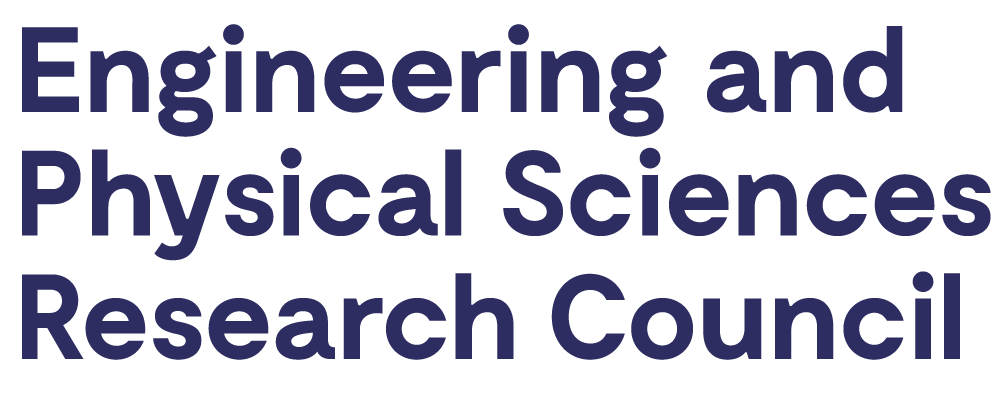 |
2024 - 2032 Co-I in the Centre for Doctoral Training in Digital and Automated Materials Chemistry. |
 |
2024 - 2029 Co-I in the hub AI for Chemistry: Alchemy, joint with Imperial College London. |
 |
2024 - 2026
The Royal Society International Exchanges grant (£12K) for bilateral visits between our Data Science group and Prof Yoshua Bengio (Mila institute, Montreal, Canada), the Alan Turing award winner (Computer Science analog of Nobel's laureate) with the highest h-index in Computer Science. Title: Generative methods for materials design on geographic-style maps of crystals (IES\R1\241474). |
 |
2023 - 2025
The Royal Society APEX fellowship replacing the teaching for two years (£100K). Title: New geometric methods for mapping the space of periodic crystals (ref APX\R1\231152). Outline. In 1869, Mendeleev arranged the known chemical elements into a spatial map – the periodic table - which grouped them according to their properties. The appearance of ‘gaps’ in the table spurred the discovery of new elements, while the attempt to understand the physical rationale behind its structure drove revolutionary advances in both physics and chemistry. We aim to extend Mendeleev’s idea to all periodic structures using spatial relationships between atomic nuclei. |
 |
2023 - 2025
The Royal Society International Exchanges grant (£12K) for bilateral visits between our Data Science group at Liverpool and Prof Nicholas Kotov's lab at the University of Michigan (US). Title: Geometric invariants for interactions of proteins with inorganic nanoparticles (IES\R3\223215). |
 |
2022 - 2025
New Horizons EPSRC grant with co-I Prof Andy Cooper FRS. Budget: £250K covers a postdoctoral assistant for 20 months. Title: Inverse design of periodic crystals (ref EP/X018474/1). |
 |
2021 - 2023
Royal Academy of Engineering Fellowship, Cambridge Crystallographic Data Centre. Title: Data Science for Next Generation Engineering of Solid Crystalline Materials (ref IF2122\186). The RAEng funded a 2-year teaching replacement (total £220K), the CCDC invested £60K for a PDRA. |
 |
2020 - 2023
NERC grant (£965K, ref NE/V010778/1) on improving plastic packaging is led by Dr Thomas McDonald. I am responsible for a Data Science analysis of plastic materials properties. Title: Post-Consumer Resin - Understanding the quality-performance linkage for packaging. |
 |
2019 - 2022 Unilever's top-up (£18K) for the PhD bursary of Thomas Welsh, who has done a great MSc thesis for Unilever in summer 2018 and continues working on Unilever's projects in his PhD. |
 |
2018 - 2023
EPSRC grant led by Prof Ulrike Tillmann and Prof Heather Harrington from Oxford.
The 100% budget is £3.5M.
I lead the Liverpool team with a budget over £715K including Professors Cooper,
Spirakis,
Potapov.
This success has created the Centre for Topological Data Analysis. Title: Application-driven Topological Data Analysis (ref EP/R018472/1). |
 |
Since 2017 The main organiser of the network Applied Geometry and Topology covering meetings at the Universities of Liverpool (with O.Anosova), Queen Mary (G.Bianconi, M.Farber), Southampton (J.Brodzki, J.Grbić), funded by the London Mathematical Society (£11.4K over 2017-2025). |
 |
2017 - 2020 Intel gift ($40K per year) for Grzegorz Muszynski's PhD "Topological analysis of the Climate System" funded via the Lawrence National Berkeley lab (US) at the University of Liverpool. |
 |
2017 - 2019
The Royal Society International Exchanges grant (£12K) for bilateral visits between our Data Science group at Liverpool and Prof Herbert Edelsbrunner's group at IST Austria. Title: Topological Data Analysis for a faster discovery of new materials (IES/R2/170039). |
 |
2014 - 2016
Knowledge Transfer Secondments at Microsoft Research Cambridge with Dr Andrew Fitzgibbon.
The EPSRC gave about £25K, Microsoft Research provided £75K in-kind contribution. Covered visits to Prof Carlsson at Stanford and Lawrence National Laboratory in Berkeley (2016). Title: Applications of Topological Data Analysis to Computer Vision. |
 |
2011 - 2013
EPSRC first grant (£125K) with post-doctoral assistant
Dr Alexey Chernov, which continued as Knowledge Transfer Secondments at Microsoft Research Cambridge in 2014-2016. Title: Persistent Topological Structures in Noisy Images (ref EP/I030328/1) |
 |
2005 - 2007
Marie Curie
International Incoming Postdoctoral Fellowship (142K Euros). University of Liverpool (UK), September 2005 - May 2007. Title: Combinatorial Knot Theory. |
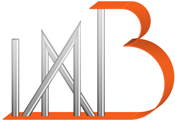 |
2003 - 2004
Postdoctoral Fellowship (22K Euros). University of Burgundy, Dijon (France). Title: Combinatorial Group Theory. |
Back to Top of this page
Group in Data Science Theory and Applications (DSTA): members and PhD students
Group photo in April 2025: Dan Widdowson, Jonathan McManus, Vitaliy, Olga Anosova, Milo Torda, Will Jeffcott.
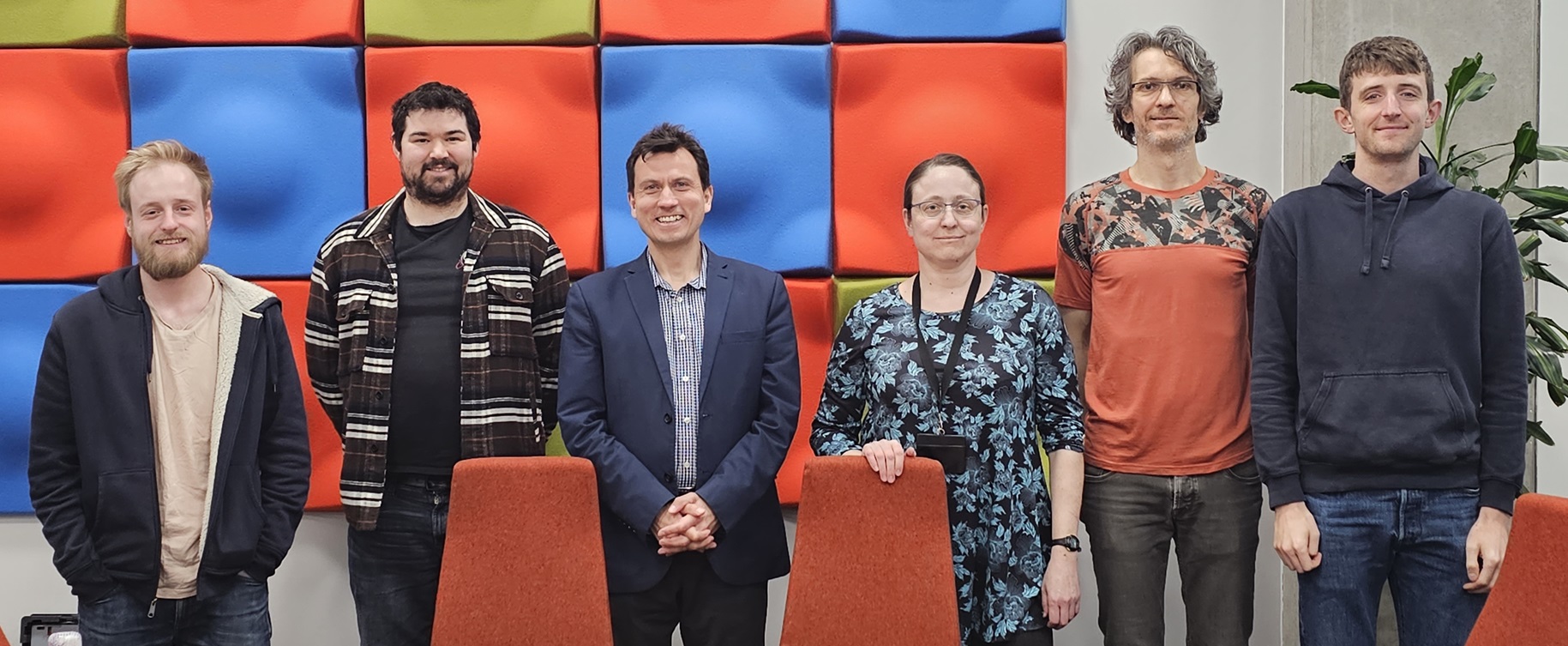
The group develops a new area of Geometric Data Science studying moduli spaces of real data objects modulo practical equivalences. The key example is a finite or periodic set of unordered points modulo rigid motion or isometry. The major breakthroughs are the Crystal Isometry Principle for all periodic crystals and complete isometry invariants of all clouds of m unordered points with continuous metrics that are computable in polynomial time in m for a fixed Euclidean dimension.
- January 2026:
following our research in
SIAP 2026,
PR 2026,
SR 2025,
IUCrJ 2024, and
CGD 2024,
the news story on duplicate structures in materials databases
led to the correction of a Nature paper, which initially over-claimed its results.
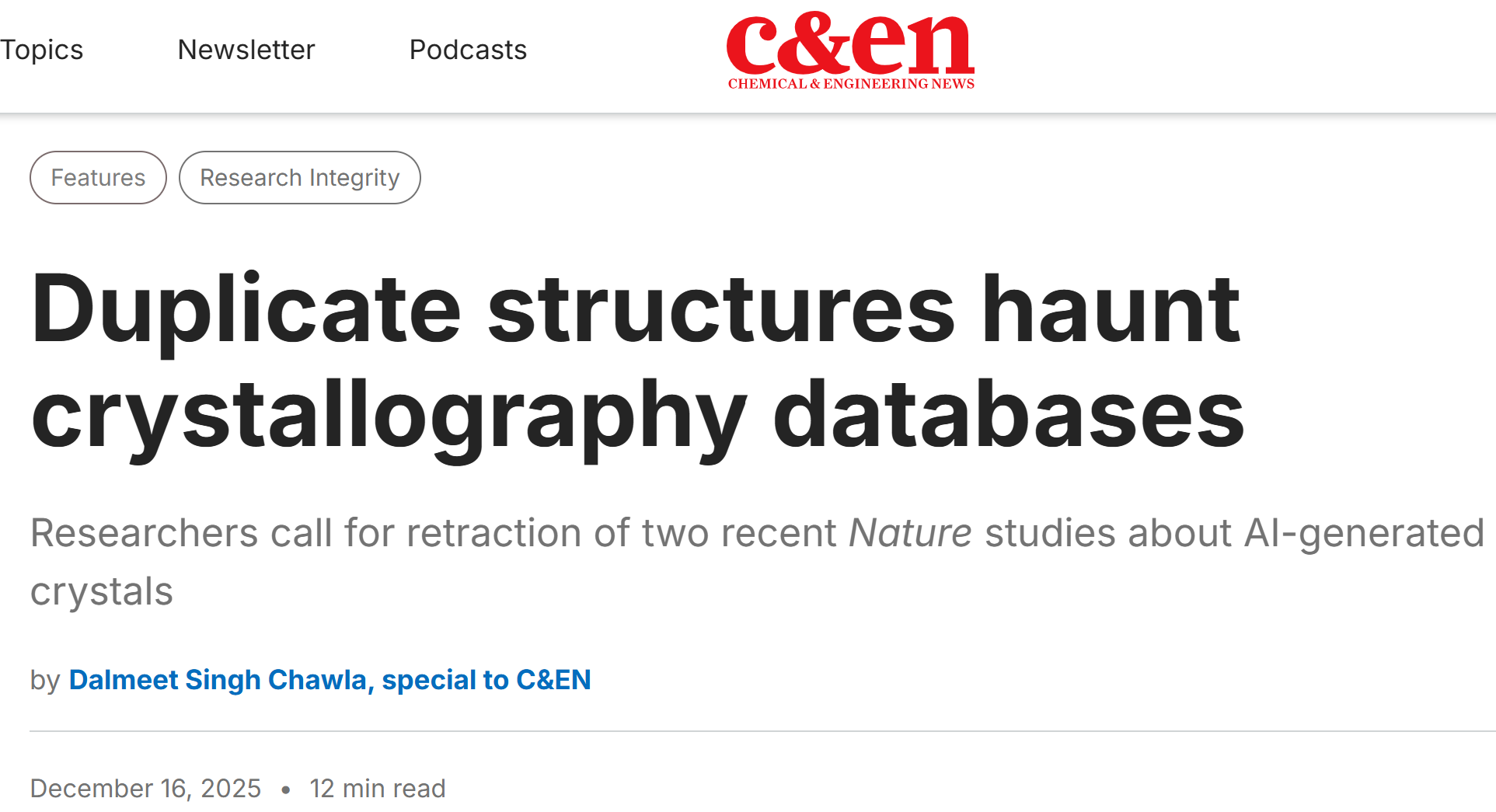
- September 2023: the press release of the British Academy highlighted the Royal Society APEX fellowship "New geometric methods for mapping the space of periodic crystals" (one of eight awards across sciences and humanities).
- September 2022: the university news highlighted the EPSRC New Horizons grant "Inverse Design of Periodic Crystals".
- June 2022: the spotlight Porous Molecular Framework Structures by Design on our JACS 2022 paper highlighted "a way not only to make mesoporous molecular crystals but also make other crystals in a quantifiable and predictive manner".
- October 2021: the Royal Academy of Engineering Industrial Fellowship "Data Science for Next Generation Engineering of Solid Crystalline Materials" at the Cambridge Crystallographic Data Centre was announced in the university news.
- April 2019: the research of our group in the MIF has been highlighted in the case study The shape of spaces.
- December 2018: the research of PhD student Grzegorz Muszynski funded by Intel through the Big Data Center at the Lawrence Berkeley lab (US) has been highlighted in the HPC wire news Topology Can Help Us Find Patterns in Weather.
- January 2018: the EPSRC awarded £3.5M to the 5-year project Application-Driven Topological Data Analysis in 2018 - 2023 (EP/R018472/1) at the Universities of Liverpool, Oxford, Swansea. The Liverpool team had a budget of £715K+.
- August 2017: the group established the Intel Parallel Computing Centre (IPCC) funded by Intel at the University of Liverpool via the Big Data Center at the Berkeley lab to develop new methods for detecting extreme weather events.
- Since 2017: the group offers the opportunity to give informal talks at the regular group seminar, see our alumni.
Back to Group | Back to Top of this page
Group members, postdoctoral assistants and associate members
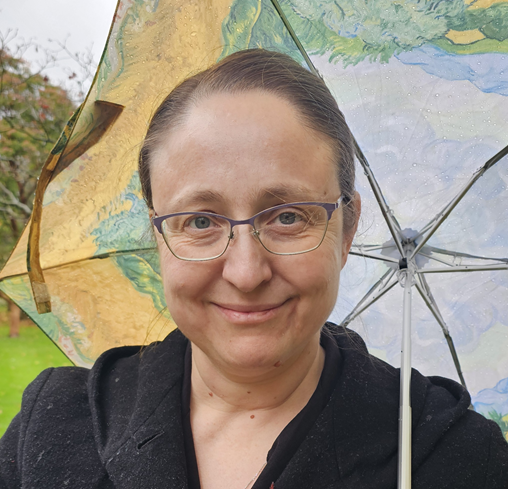 |
Dr Olga Anosova is a University Teacher in the school of Computer Science and Informatics.
Olga completed a PhD in Dynamical Systems and taught big classes at several universities since 2005. Joint papers: Pattern Recognition 2026, Acta Cryst D 2025, MATCH 2025, IUCrJ 2024, JMIV 2023, DGMM 2022, CMMP 2022, DAMDID 2022, DGMM 2021, NumGrid 2021. |
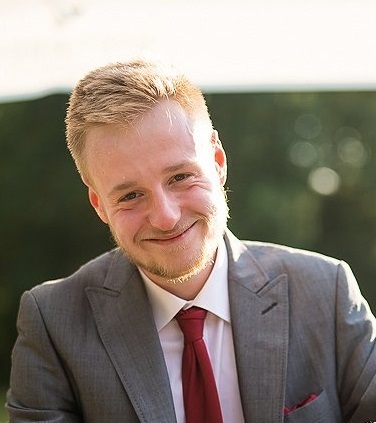 |
Dr Daniel Widdowson is a postdoctoral assistant funded by the AIchemy hub. In 2020-2024, Daniel completed the PhD Continuous Isometry Invariants of Periodic Crystal Structures supervised by Vitaliy Kurlin (70%), Andy Cooper (20%), and Isaac Sugden (10%). Joint papers: SIAM J Appl Math 2026, Pattern Recognition 2026, Scientific Reports 2025, CGD 2024, DiD 2023, CVPR 2023, NeurIPS 2022, JACS 2022, DiD 2022, MATCH 2022. |
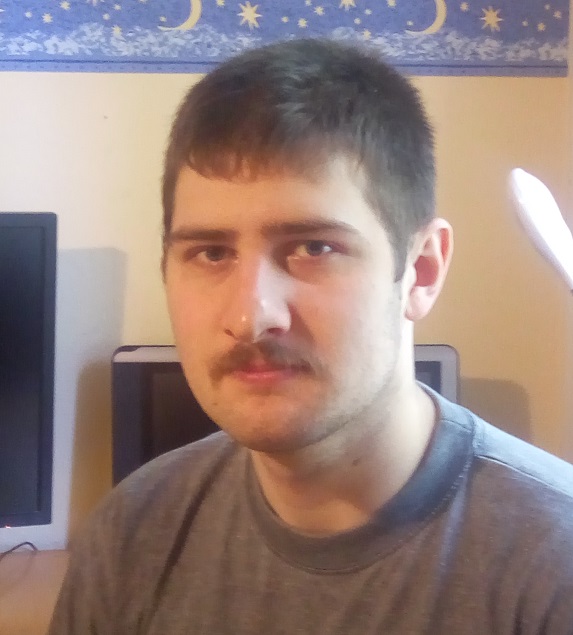 |
Dr Yury Elkin is a postdoc funded by the EPSRC grant Inverse design of periodic crystals. In 2017 - 2022, Yury completed the PhD A new compressed cover tree for k-nearest neighbour search and the stable-under-noise mergegram supervised by Vitaliy Kurlin and Marja Kankaanrinta. Joint papers: ICML 2023, TopoInVis 2022, Mathematics 2021, MFCS 2020, TopoInVis 2019. |
 |
Dr Miloslav Torda (associate member) is a postdoc in Andy Cooper's group. In 2018-2022, Milo completed the PhD Maximally dense crystallographic symmetry group packings for molecular crystal structure prediction supervised by Yannis Goulermas, Vitaliy Kurlin, and Graeme Day. Joint papers: SISC 2023, PRE 2022. |
Back to Group | Back to Top of this page
Current 1st supervision: students who I help as the first supervisor (ordered by start date).
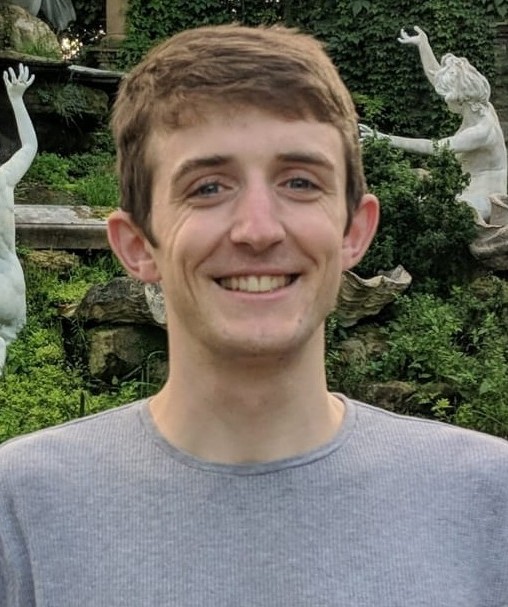 |
PhD student Mr William Jeffcott (since November 2021) is funded by the CDT in Distributed Algorithms and supervised by Vitaliy Kurlin. Joint papers: Acta Cryst D 2025, MATCH 2025. Project: Geometric Data Science for protein structures. Will completed a 1st class Master of Mathematics degree at Durham, UK. |
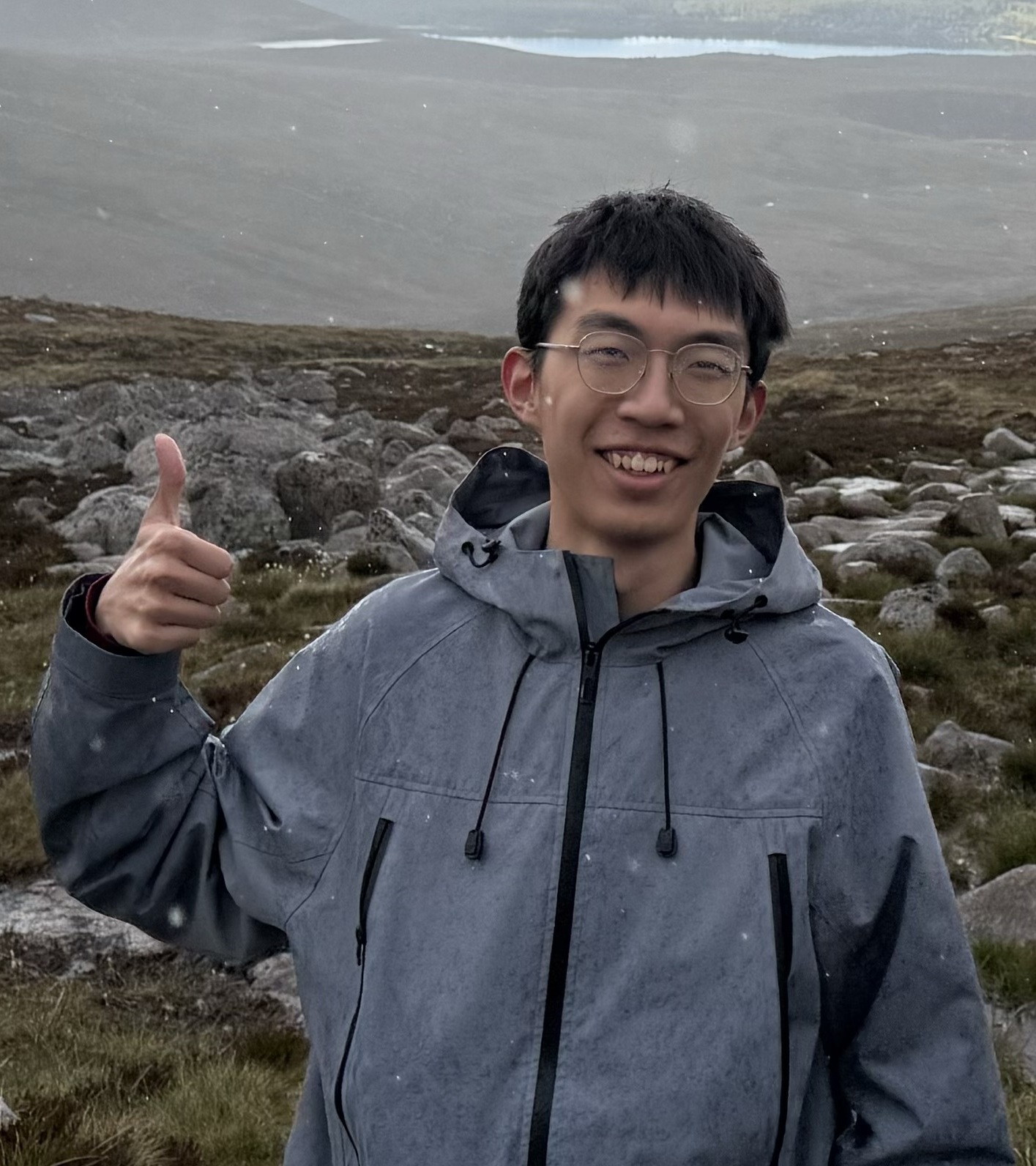 |
PhD student Mr Ziqiu (Henry) Jiang (since December 2025) is funded by the CDT in Digital and Automated Materials Chemistry and supervised by Vitaliy Kurlin and MIF director Andy Cooper. Joint papers: Acta Cryst D 2025, MATCH 2025. Project: Explaining Structure-Property Relations in the Materials Space. Ziqiu completed a final year project and a summer internship in our group in 2024. His fast implementation of the Backbone Rigid Invariant crucially contributed to the papers above. |
Back to Group | Back to Top of this page
2nd supervision: students who I help as the 2nd supervisor (ordered by start date).
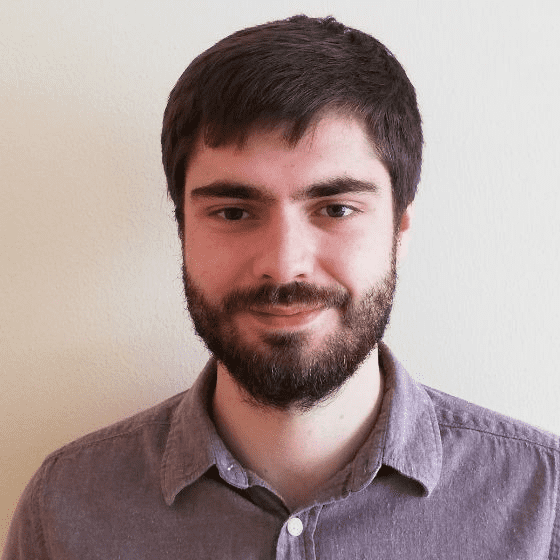 |
PhD student Mr Adam Coxson (since Oct 2021) is supervised by Alessandro Troisi and Vitaliy Kurlin. Project: Developing Machine Learning algorithms with physical constraints for materials discovery. Adam completed a first class Master of Physics degree at the University of Manchester, UK. |
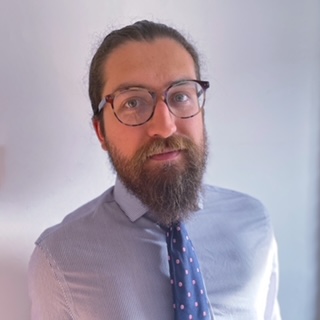 |
PhD student Mr Alessandro Gerada (part-time over 7 years since Oct 2021) is supervised by William Hope, Vitaliy Kurlin and Steve Patterson, funded by the doctoral network AI for Future Digital Health. Project: Understanding bacterial resistance by machine learning from genetic data. Alessandro has a medical degree from the University of Malta and several qualifications from the Royal Colleges of Pathologists and Physicians (UK). |
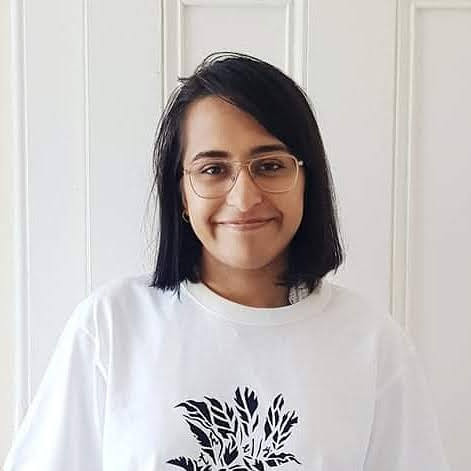 |
PhD student Nandini Gadhia (part-time over 7 years since Dec 2021) is supervised by Anh Nguyen, Vitaliy Kurlin and Dominic Richards, funded by the doctoral network AI for Future Digital Health. Project: Artificial Intelligence for accelerated drug discovery. Nandini has MSc in Physics (UCL) and BSc in Maths and Physics (Warwick). She does a part-time PhD in parallel with her work at the STFC Hartree centre. |
Back to Top of this page
Join the group in Data Science Theory and Applications
If you know C++ or Python, and wish to apply for a PhD studentship or a postdoctoral fellowship at Liverpool, e-mail me.
External funding: we look for postdoctoral candidates with mathematical and programming skills.
- Royal Society Newton International Fellowships (deadlines in February-March, extra fellowships for postdoctoral candidates from Israel, China, Italy, Brazil, Mexico, South Africa, Turkey).
- European Marie Curie individual fellowships (deadlines usually in early September).
- EPSRC Postdoctoral Fellowships (no deadline, best submitted in January or July).
- Leverhulme Trust Early Career Fellowships (deadlines in February-March).
- AXA postdoctoral fellowships (deadlines in early April/October).
- PhD scholarships at the University of Liverpool (different deadlines depending on your country and case).
- Commonwealth PhD Scholarships (for low and middle income countries, deadlines in February/March).
Back to Top of this page
Experience : CV and job history since 2000
- Curriculum vitae with the full list of publications in pdf (11 pages, 153K, last updated in August 2025)
- Current research: Geometric Data Science for computer vision, materials chemistry, and structural biology
- Past research: climate science, non-commutaive algebra, low-dimensional topology, graph embeddings
- Programming: C/C++ (industry level), Python, PHP, HTML5, CSS3, Python, Java, Matlab, Javascript
- Since 2016: senior lecturer, then reader, now full professor, Materials Innovation Factory, Liverpool, UK
- 2014 - 2016: visiting scientist in the Computer Vision group at Microsoft Research, Cambridge, UK
- 2007 - 2016: university lecturer (assistant professor) in Mathematics, Durham University, UK
- June - September 2007: research postdoc in Sensor Networks, Lancaster University, UK
- September 2005 - May 2007: research postdoc in Knot Theory, University of Liverpool, UK
- February - May 2005: teaching fellow in Knot Theory, Independent University of Moscow, Russia
- December 2003 - November 2004: postdoc in Combinatorial Group Theory, University of Burgundy, France
- November 2000 - October 2003: PhD student in Geometry and Topology at Moscow State University, Russia
Back to Top of this page
Education: PhD (2003), MSc (2000, 2002), and PGCert (2009)
- 2021-2022: Heilbron leadership program for senior leaders, University of Liverpool.
- 2008 - 2009: PGCert (Postgraduate Certificate) in Teaching and Learning in Higher Education and a fellow status in the Higher Education Academy, UK.
- November 2000 - October 2003: PhD in Geometry and Topology,
Moscow State University.
Thesis: Basic embeddings of graphs and 3-page embeddings of graphs.
Supervisors: Professor Victor Buchstaber and Professor Arkady Skopenkov.
Scientific school of the Fields medalist Sergey Novikov, see Math Genealogy. - 1995 - 2002 (part-time): MSc in Mathematics,
Independent University of Moscow.
Thesis: Turaev-Viro invariants of compact 3-dimensional manifolds. - September 1995 - June 2000: MSc in Mathematics (top grade 5 in all courses),
Moscow State University.
Thesis: 3-page diagrams of spatial 3-valent graphs. - June 1995: Gold medal (top grade 5 in all subjects), Physical-Mathematical School N146, Perm, Russia.
- September 1993 - May 1995: Top grades in mathematics and physics in the 2-year distance course by Moscow Institute of Physics and Technology whose famous graduates include several Nobel laureates.
Back to Top of this page
